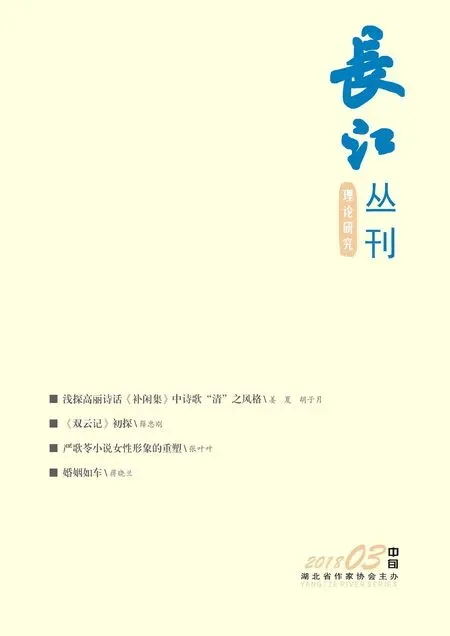The Humanist Characteristics in Faustus’s Pursuit of Knowledge
■
西华师范大学外国语学院
一、The human-centered value of Humanism
Faustus embodies the Renaissance aspiration for infinite knowledge. In his Age,Theology,Philosophy,Medicine,and Law are the primary subjects; however,all of them cannot satisfy his desire for knowledge. Therefore,he revels in magic,through which he attempts to procure the supreme power beyond the Earth,like a semi-god.
In the very beginning of the play,Faustus tastes all the academic fields. He denies them all and desires for the study of the black arts,in that they will grants him “a world of profit and delight/ Of power,of honor,of omnipotence” From this perspective,he is the representative of the humanists’ craving for new lives.
He proclaims,“Shall I make spirits fetch me what I please,/ Resolve me of all ambiguities……And make swift Rhine circle fair Wertenberg……” Therefore,he is as well a noble and respectable character who even spares no expense to exchange his soul for more and greater knowledge with which Faustus has the capability to enjoy earthly pleasure as well as to serve his country and people with magic.
Furthermore,he says that he wants resolution of all ambiguities. Is not this search for such clarity a noble endeavor which exemplifies all the humanists’ wishes to become better human beings? It is,after all,the spirit of the Renaissance- and Faustus’ avarice to create wonder,to exceed human vulnerability,fallibility and uncertainty denotes an aspiration to experience everything to its fullest extent.
Accordingly,Faustus’ relentless pursuit of independent knowledge is the very miniature of the positive respect of Humanism in Renaissance that advocated the value with human beings in the center. Now,this spirit is the mainstream of our society and no doubt,it will glitter for good.
二、The abnormal phenomenon in Renaissance
Faustus was the tragical hero in the Renaissance time. His tragedy was the tragedy typical of a humanist at that age. It was the transition of the social formation that to some extent occasioned the tragedy of Faustus. Therefore,the times can lead one person to the heaven as well as can desert him in the unfathomable cold abyss.
Preceding the Renaissance,under the predominant power of the church,people were in allegiance to the Scripture. They were restrained by the doctrine and on no account were any “unethical ideas” permitted to sprout. However,zeal for the classics was a result as well as a cause of the growing secular view of life. Expansion of trade,growth of prosperity and luxury,and widening social contacts generated interest in worldly pleasures,in spite of formal allegiance to ascetic Christian doctrine.
Previous ascetic life generated Faustus’ unbridled appetite. The knowledge gives his power,but once he obtained these powers,however,he seemed only to waste them,performing little tricks and never succeeded in doing anything nearly as grand as he had initially imagined. In this way,Faustus’ quest for knowledge seems to be inadequate,unsatisfying and incomplete.
Once the desire for freedom was accumulated to some extent,it would convert unconsciously into the uncontrollable morbid fanaticism. Thereupon,the reason would give way to the passion.
三、Conclusion
The relentless pursuit of knowledge is undoubtedly admirable. However,what hides behind the noble spirit is the fundamental desire. The defects of Faustus’ personality (or those of the humanists’),which are reflected in the loneliness and empty of his spirit and his sensual desire,do stimulate himself to go to the Hell. The Tragedy of Doctor Faustus illustrates the irreconcilable nature of the conflicts that stems from the pursuit of knowledge and assumes the inevitable limits of human mind. Therefore,we are supposed to seek the harmony between the passion and the reason. Lao Zi said,“Life is short,and art is long. It is fatal to pursue the infinite with finite.”
[1]罗经国,刘意青.新编英国文学选读(上)[M].北京:北京大学出版社,2016.
[2]Cui Weiqiao.Clashes of Life:A Study of the Tragedy of Doctor Faustus[D].Chongqing:Southwest University,2009.

